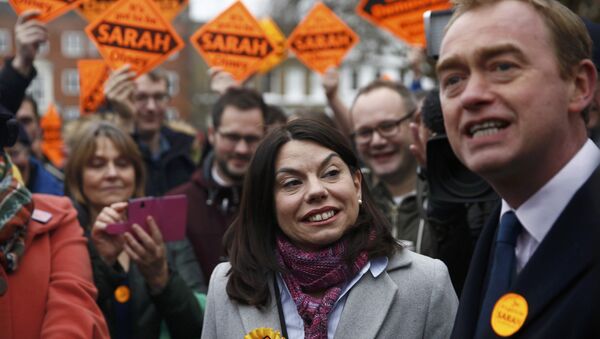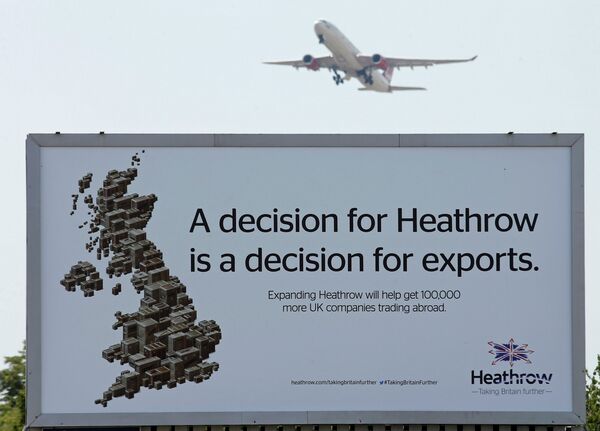The thorn in May's side began before she became prime minister, when Britain was debating how its capital city should address the growing demand for another runway for London, with Heathrow running at near capacity and demands for more slots in the face of growing global trade.
Her predecessor, David Cameron, said there would never be a third runway for Heathrow; former London Mayor Boris Johnson — now May's foreign secretary — favored a new island built in the middle of the River Thames; while others preferred the idea of second runways at Gatwick — south of London — or Stansted — northeast of London.
The member of Parliament for the London constituency of Richmond Park — named after the deer park created by King Charles I — was the Conservative environment campaigner Zac Goldsmith, who was anti-expansion of Heathrow and, importantly, in favour of leaving the EU — Brexit.
When May announced her preferred option was to be a third runway at Heathrow, Goldsmith resigned, forcing a by-election. May decided the party would not put up a candidate against Goldsmith, who had decided to stand as an Independent candidate.
May's assumption was that — presuming the popular Goldsmith would win —although she might lose a Conservative seat, she might well retain his voting power over any Brexit vote.
Southbourne (Chichester) result:
— Britain Elects (@britainelects) December 1, 2016
LDEM: 57.7% (+15.8)
CON: 25.8% (-32.3)
UKIP: 11.8% (+11.8)
LAB: 4.7% (+4.7)
However, the seat was lost by Goldsmith and won by a pro-EU Liberal Democrat Sarah Olney, wrecking May's plan.
I will stand up for the open, tolerant, united Britain that we believe in. pic.twitter.com/c51dqx1UDN
— Sarah Olney (@sarahjolney1) 2 December 2016
Liberal Democrat leader Tim Farron said: "This was a remarkable, come-from-nowhere upset that will terrify the Conservatives… If this was a general election, this swing would mean the Conservatives would lose dozens of seats to the Liberal Democrats — and their majority with it."
"We are carrying the torch for all of those who want a real opposition to this Conservative Brexit government," he said.
May or May Not?
May is already facing political and legal opposition to her plans for triggering Article 50 of the Treaty of Lisbon, which triggers the formal process of negotiating Britain leaving the EU and deciding its future relationship with the EU.
A fantastic win for @sarahjolney1 @LibDems in #RichmondPark. This shows the hard Brexiteers that they need to think again. #LibDemFightback
— Nick Clegg (@nick_clegg) December 2, 2016
Although she says she has the right — as prime minister using ancient powers known as the Royal Prerogative — to trigger Article 50, she is facing a legal challenge on the grounds that parliament alone has the power to vote on such action.
Although members of parliament are unlikely to go against the result of the referendum on Britain's membership of the EU — which resulted in the vote to leave the EU — it may impose a series of caveats that may hinder the actual process of negotiations.
Congratulations @sarahjolney1 and @LibDems. Europe is watching & we are proud #IamEuropean #ALDECongress https://t.co/4BzIuc1mY1
— Guy Verhofstadt (@GuyVerhofstadt) 2 December 2016
The fact that the latest by-election has lost her a Conservative seat in parliament — reducing her working majority in the House of Commons to 13 — will weigh heavily. The seat was won by a pro-Europe Liberal Democrat, which will add to opposition to May's plans for a speedy exit from Europe.



